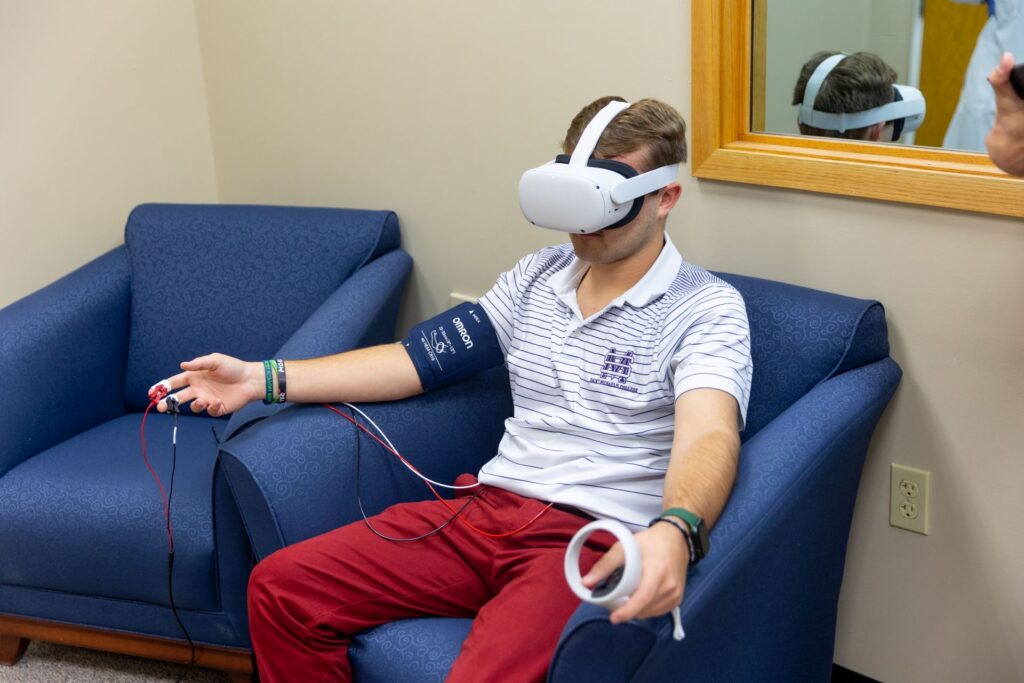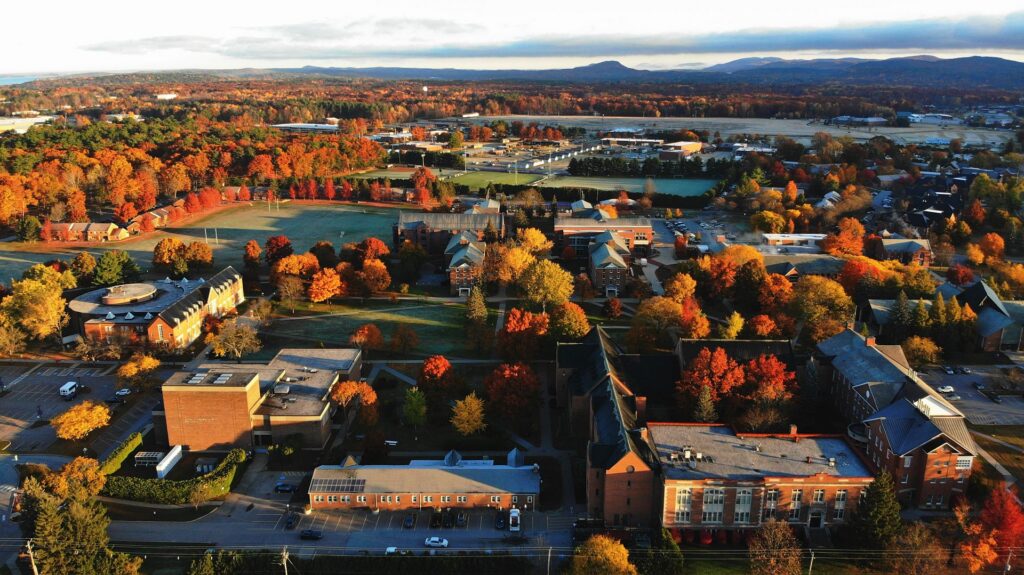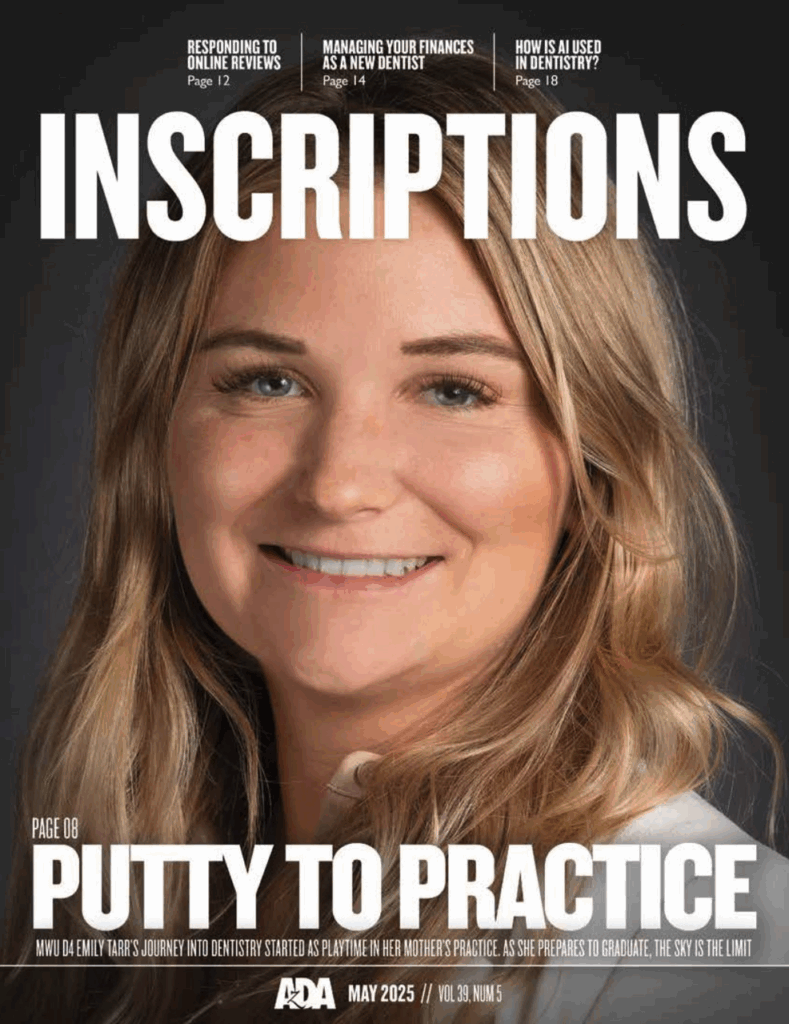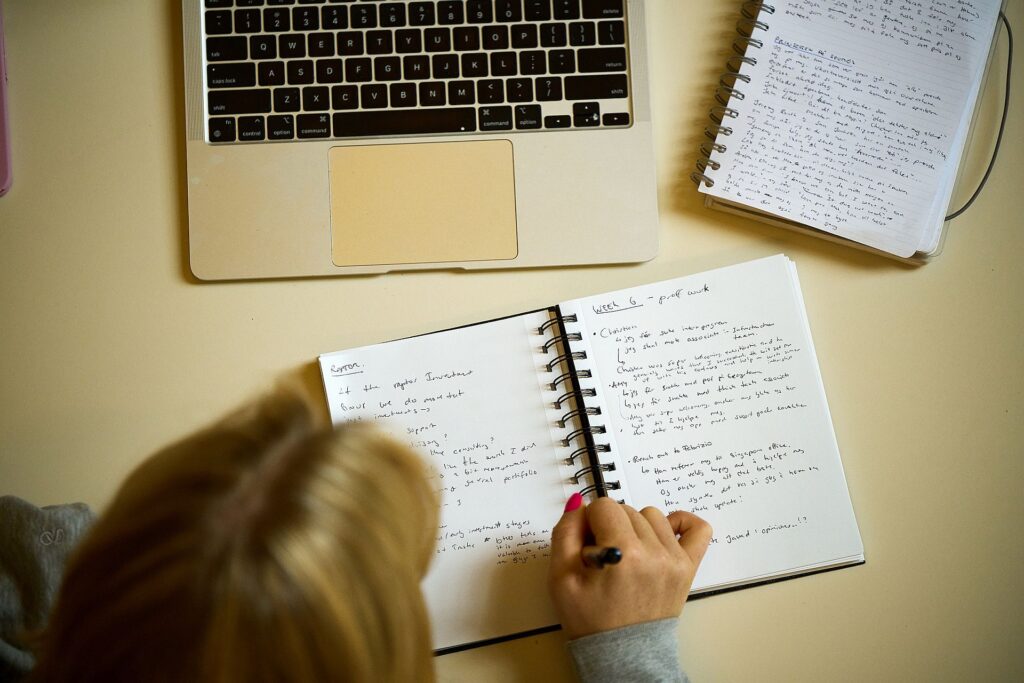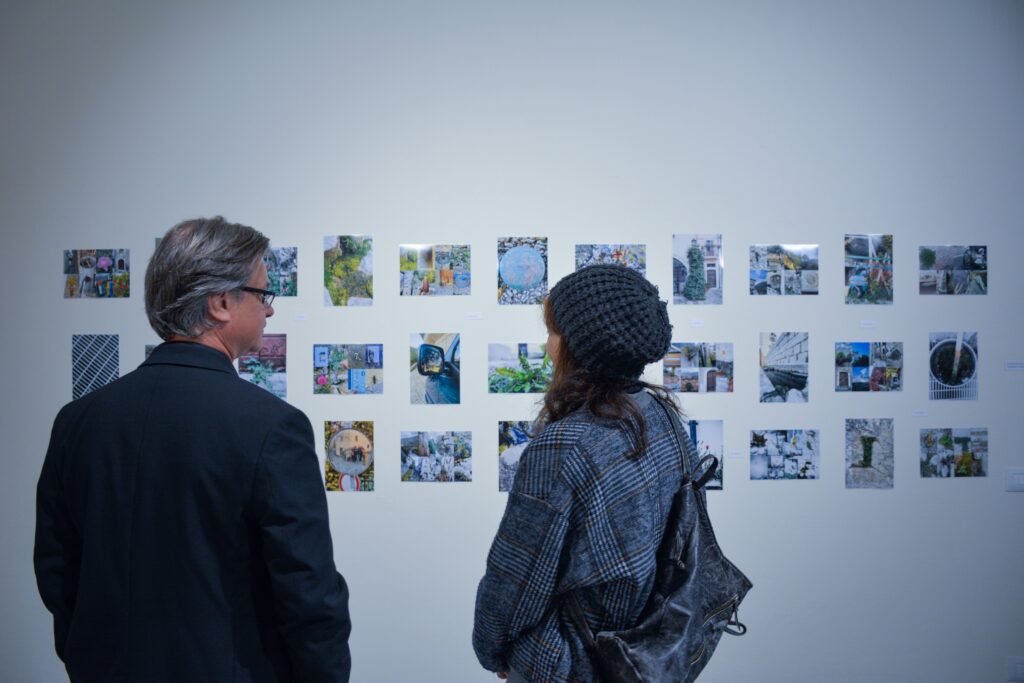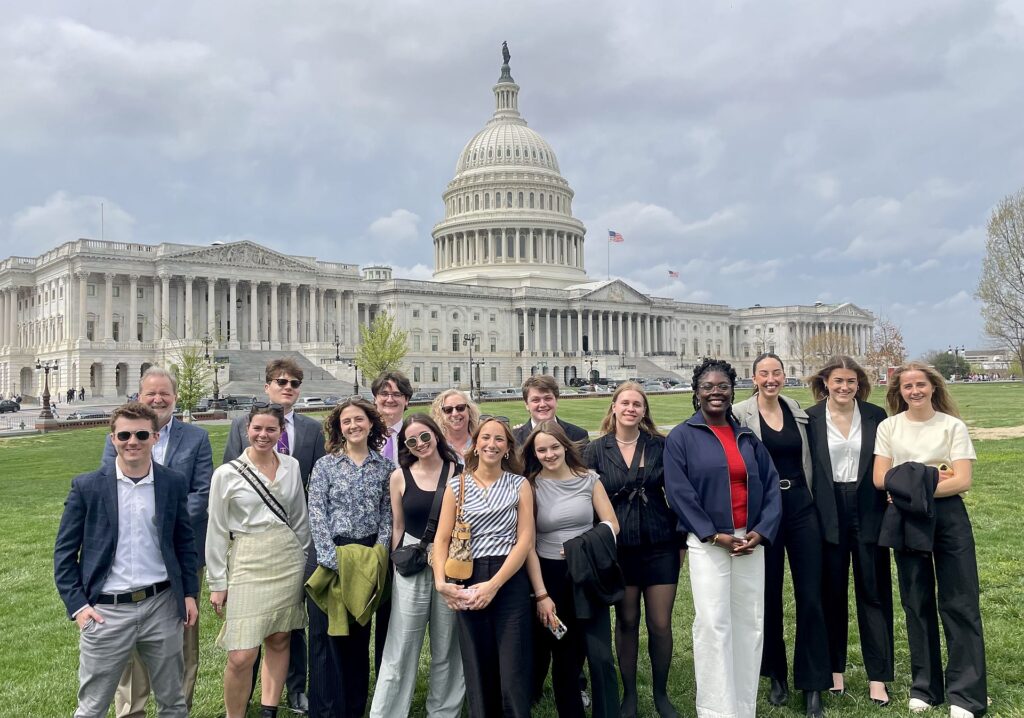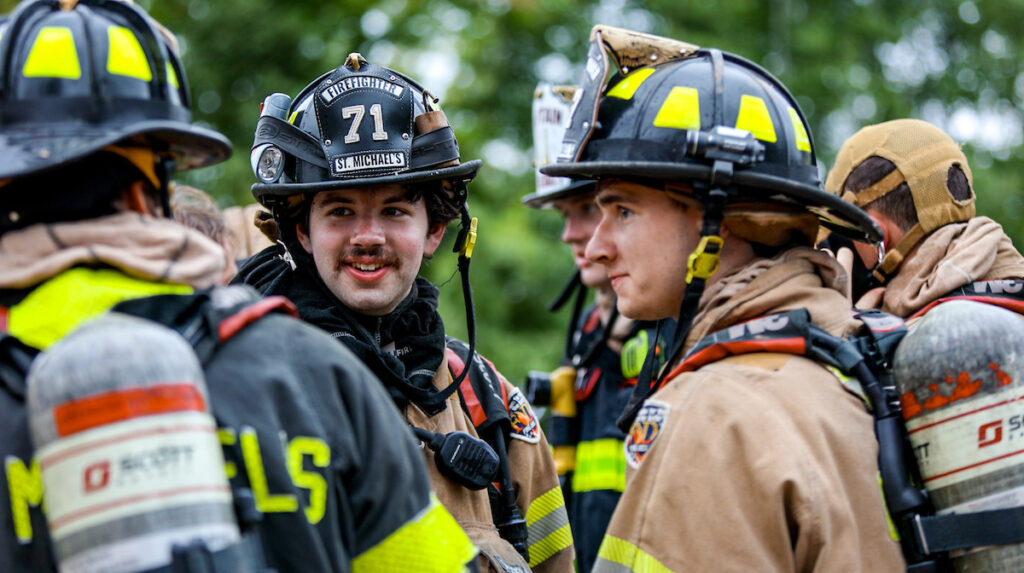Taking the lead: St. Mike’s student discovers confidence through spearheading research study
Colby Fane-Cushing ’25 arrived on Saint Michael’s campus with the goal of becoming a doctor.
That dream was briefly in flux when the Colchester native and baseball player struggled through his first year. However, he credits his professors and the school community for helping him and believing in him until he was able to work toward success. He put in the hard work, and the successes certainly followed.
At Saint Michael’s, Fane-Cushing became a student researcher on a virtual reality meditation study which was conducted with support from NASA and the National Science Foundation – a huge boon as Saint Michael’s is the only small liberal arts college on the project. Fane-Cushing began work on that project as a sophomore.
Later, tapping into his experience as a former student-athlete, he had an idea for a related study. He became the principal investigator on his own project – even leading a team of student researchers – studying stress relief for in-season athletes.
During his college career, Fane-Cushing took on opportunities few (non-Saint Michael’s) undergraduate students get to do. He describes himself now as confident and a leader, and he is more certain than ever of his desire to pursue medicine. Fane-Cushing is on track to graduate in spring 2025 with a major in Neuroscience and minors in Public Health, Chemistry, and Biology.
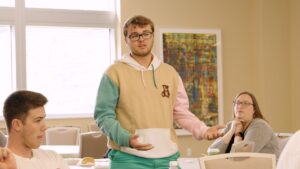
Colby Fane-Cushing ’25 describes his continued research funded by NASA on June 7, 2023.
Win-win: Student’s future is clarified by experience leading research on stress reduction for athletes
After working on a scientific research project that studied VR meditation’s effect on stress and immune response, Fane-Cushing wondered about the benefit to a particularly stressed campus population: student-athletes. As a Saint Michael’s baseball player for three of his college years, Fane-Cushing knew that the pressure to perform sports and academics at the highest levels, in addition to finding time to eat and have a social life, puts a lot of strain on student-athletes, particularly during their season.
For this project, he wanted to see the effects virtual reality meditation could have on the body and mind over time – unlike the original study, which had subjects attending one session.
Deploying the study was tricky, however. Subjects couldn’t be told they were being monitored for stress because it could compromise the data. They were told it was a lifestyle study and came in for pre-testing and filled out questionnaires.
That was a particularly tough week for Fane-Cushing, who wrote all the protocols and questionnaires for the study in addition to studying for a couple of tests in his other classes. He said he didn’t balance his time well, but it was a good lesson in time management.
During the three-week study in fall 2024, subjects came to the lab twice per week for in-person sessions while also completing a third session on their own outside the lab. Subjects wore a blood pressure cuff and a heart rate sensor to measure heart rate, heart rate variability and respiratory rate during the in-person sessions. They would also give saliva samples twice per week to measure the body’s immune response to stress.

Student researcher Colby Fane-Cushing ’25 demonstrates the experiment set-up for a VR meditation study funded by NASA in 2022. (Photo by Patrick Bohan)
During one of the early sessions, a participant was having motion-sickness issues which would be problematic both for the subject and the study. Fane-Cushing used quick thinking to solve the problem.
“I took the headphones because I had learned in behavioral neuroscience with Professor Tomasulo that a lot of balance comes from your ears,” Fane-Cushing said. “So, 8:15 in the morning I felt like Superman because I thought I’d saved the study.”
By the end of 2024, that data was just beginning to be analyzed, but Fane-Cushing was already pleased with the results.
“One of the participants actually mentioned that not only did they feel better in terms of their overall health, but they felt themselves,” Fane-Cushing said. “With every single thing in their life they felt more control.”
Fane-Cushing said ultimately that’s why you do research – to help people.
“To know that you helped someone right then and there, it was very good to hear and very rewarding,” he said.
The experience taught Fane-Cushing that he can handle running and working with a team, he enjoys doing research, and he can do it all while helping people – all things he said doctors do.
“It further reinforces the fact that that is something that is for me and that I want to do,” he said.
Fane-Cushing is planning another study for the spring with more participants and a longer time frame, taking and improving upon what he learned from the fall study.
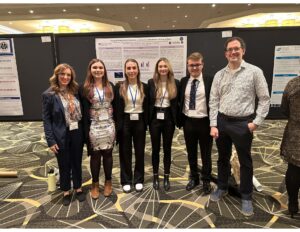
Colby Fane-Cushing ’25, second from right, poses with fellow student researchers and Saint Michael’s College professors at the Eastern Psychological Association’s annual meeting in 2023. The team attended the meeting in Boston to present their findings related to a study on how VR meditation can affect stress levels. (Photo courtesy of Melissa VanderKaay Tomasulo)
The Saint Michael’s difference
Fane-Cushing says that he’s had more opportunities, access to professors, and support at Saint Michael’s than many of his high school friends who went to large universities. He’s grateful for all the College has given him and feels even more prepared for his future afterward.
One thing he pointed out is how rare it is to be a research assistant and even rarer still to be a principal investigator as an undergraduate student, but Saint Michael’s gives students that opportunity.
“Whether you like research or not – the fact that you can find out whether you do at St. Mike’s is so important,” he said. “Being able to say you want to be a Ph.D. or an M.D. for the research aspect is one thing, but being able to know before you spend the money and apply, and find out later that you don’t want to do it is another.”
He said he’s also had a more involved advisory relationship than his former high school classmates because he has been able to talk through which classes best meet his goals. And, he says the access to professors is much higher.
“There’s an open-door policy almost all the time,” he said. “You always know where the professors are because they’ll write notes on their doors like ‘hey I’ll be back in a little while I’m just getting food,’ or their door is open. Being able to have a conversation, being able to email, and getting an email back pretty quickly – or really anything – is awesome.”
Fane-Cushing said he came to college without a lot of confidence in himself but through support and focusing on a growth mindset, he found his confidence. He recommends students ask for help if they need it, just like he did. Now, he is paying it forward – he tutors students who could use some help and is instructing others on how to do scientific research.
His research study experiences also taught him about managing people and schedules, his own time management, and how to be a leader – all invaluable skills as he prepares for life and career outside Saint Michael’s College.

For all press inquiries contact Elizabeth Murray, Associate Director of Communications at Saint Michael's College.
